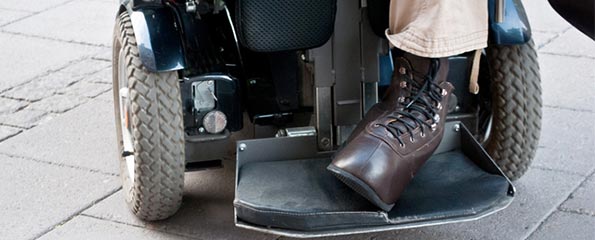The primary objective of this study will be to determine the effects of physical activity in patients during substantial surgery-induced weight loss. A randomised controlled physical activity intervention trial in a group of patients undergoing bariatric surgery for weight loss. The study will involve two sites with an active bariatric surgery program, which have a strong track record of bariatric surgery research. The study will include 160-200 subjects. Changes in the primary outcome variables will be determined in previous gastric bypass patients as a result of 6 months of moderate physical activity compared to an educational control group not engaged structured exercise.
Official Title
Physical Activity Following Surgery Induced Weight Loss.
Conditions
- Obesity
Study Type
Interventional
Study Design
Treatment, Randomised, Open Label, Parallel Assignment, Efficacy Study.
Further Details
Primary Outcome Measures:
- Insulin sensitivity, intramyocellular lipid, total body fat, total lean mass
Secondary Outcome Measures:
- Intra-muscular adipose tissue, abdominal fat, mitochondria content, fat oxidation
Study Start
December 2007
Eligibility & Criteria
- Ages Eligible for Study: 21 Years to 60 Years
- Genders Eligible for Study: Both
- Accepts Healthy Volunteers: Yes
Inclusion Criteria:
- Men and women (21-60 years of age) good health, stable weight, and without any contraindication to exercise.
Exclusion Criteria:
- Anaemia (Hct<34%)
- Elevated liver enzyme (25% above normal),
- Proteinuria,
- Hypothyroidism (sTSH > 8)
- Hypertension (blood pressure > 150 mmHg systolic, or > 95 mmHg diastolic)
- Diabetes mellitus (fasting glucose ≥ 126 mg/dl)
- A history of myocardial infarction or peripheral vascular disease
- Liver disease
- Alcohol or drug abuse
- Malignancy or neuromuscular disease
- Subjects will be excluded if taking chronic medications known to adversely affect glucose homeostasis (oral glucocorticoids, nicotinic acid)
- Females currently on hormone replacement therapy (HRT) can participate in the study if they have been on HRT for at least 6 months and will continue to be on HRT during the study.
- Disqualifying findings on physical examination include:
- Lower extremity thrombophlebitis
- Evidence of peripheral neuropathy, paresis or edema.
If the resting EKG prior to the exercise test shows any abnormalities, the test will not be conducted. If any abnormalities develop during the test, the test will be stopped. On both occasions, the participant will be referred to their PCP for further evaluation and will only be allowed to continue the study with written clearance by his/her PCP or cardiologist. American College of Sports Medicine (ACSM) criteria will be used to halt maximal exercise testing should adverse cardiovascular responses develop. Only after a cardiologist interprets the resting and exercise ECG of the participant and clears them for exercise, will subjects be able to continue with the study
Total Enrolment
200
Contact Details
Please refer to this study by its ClinicalTrials.gov identifier: NCT00692367
Contacts
Krista Clark, MS, RD, LDN
412-692-2415
clarkk@dom.pitt.edu
Nicole Helbling, MS, RN
412-692-2285
rasmussenn@dom.pitt.edu
Locations
East Carolina University
Greenville, North Carolina
United States, 27858
Montefiore Hospital, N807
Pittsburgh, Pennsylvania
United States, 15213
Sponsors and Collaborators
University of Pittsburgh
East Carolina University
Investigators
Principal Investigator:
Bret H Goodpaster, PhD
University of PittsburghJoseph Houmard, PhD
East Carolina University
All content and media on the HealthEngine Blog is created and published online for informational purposes only. It is not intended to be a substitute for professional medical advice and should not be relied on as health or personal advice. Always seek the guidance of your doctor or other qualified health professional with any questions you may have regarding your health or a medical condition. Never disregard the advice of a medical professional, or delay in seeking it because of something you have read on this Website. If you think you may have a medical emergency, call your doctor, go to the nearest hospital emergency department, or call the emergency services immediately.







